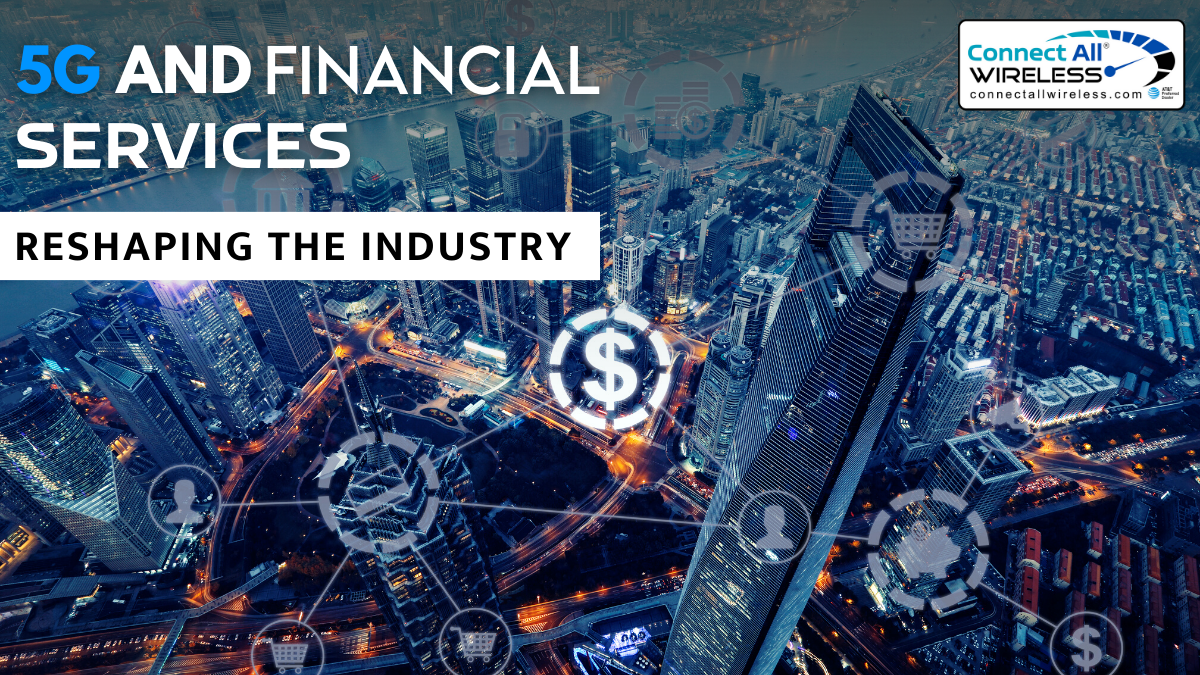5G and Financial Services: Reshaping the Industry
January 6, 2024In the fast-evolving landscape of technology, the integration of 5G is set to revolutionize various industries, and one sector that stands to gain significantly is financial services. As the fifth generation of mobile networks, 5G promises unparalleled speed, reliability, and connectivity. In this blog post, we will explore how 5G is reshaping the financial services industry and what opportunities and challenges lie ahead.
Speed and Efficiency:
One of the primary benefits of 5G in financial services is the unprecedented speed it offers. The increased data transfer rates enable real-time transactions, reducing latency to almost negligible levels. This means that financial institutions can process transactions, conduct trades, and execute complex financial operations at lightning speed. The enhanced efficiency not only improves customer experience but also opens up new possibilities for algorithmic trading, high-frequency trading, and other time-sensitive financial activities.
Enhanced Connectivity:
5G’s robust connectivity is a game-changer for financial services. It enables seamless communication between devices and financial systems, fostering the growth of the Internet of Things (IoT) in banking. With 5G, financial institutions can leverage IoT to create smart branches, ATMs, and payment systems. Enhanced connectivity also improves the accessibility of financial services in remote areas, promoting financial inclusion on a global scale.
Security and Reliability:
The financial industry places a paramount emphasis on security, and 5G comes with advanced security features that safeguard sensitive financial data. The network’s low latency and high reliability ensure secure and stable connections, reducing the risk of cyberattacks and improving overall system resilience. As financial services continue to migrate to the cloud, 5G’s security measures provide a solid foundation for protecting digital assets and customer information.
Empowering FinTech Innovations:
5G acts as a catalyst for FinTech innovations, unlocking new possibilities for financial technology companies. The high-speed, low-latency network enables the development of innovative applications, such as augmented reality (AR) and virtual reality (VR) interfaces for banking, immersive financial education experiences, and advanced analytics tools. FinTech startups can leverage 5G to create cutting-edge solutions that enhance customer engagement and streamline financial processes.
Transforming Customer Experience:
The combination of 5G and emerging technologies like artificial intelligence (AI) is set to redefine the customer experience in financial services. Chatbots and virtual assistants powered by AI can provide personalized and instantaneous customer support, while immersive technologies offer interactive and engaging interfaces for financial planning and investment management. The enhanced connectivity of 5G ensures a smooth and responsive user experience, fostering greater customer satisfaction.
Challenges and Considerations:
While the integration of 5G in financial services brings about numerous benefits, it also presents challenges that industry stakeholders must address. The rollout of 5G infrastructure requires significant investment, and financial institutions need to carefully assess the cost-benefit ratio. Moreover, concerns about data privacy and cybersecurity must be adequately addressed to maintain the trust of customers and ensure the integrity of financial systems.
Conclusion:
In summary, the integration of 5G technology into the financial services sector is undeniably reshaping the industry, propelling it into a future marked by unprecedented speed, connectivity, and innovation. As we witness the transformative power of 5G, it’s essential to recognize its potential impact on regional economies, such as in Michigan. The state’s financial landscape stands to benefit significantly from the deployment of 5G networks, fostering a more dynamic and interconnected financial ecosystem.
The advent of 5G in Michigan holds the promise of accelerating economic growth by facilitating faster and more secure financial transactions. The increased efficiency and reliability offered by 5G can contribute to the modernization of financial infrastructure, empowering businesses and consumers alike. From urban centers to rural communities, the enhanced connectivity of 5G can bridge gaps, ensuring that all residents in Michigan have access to advanced financial services.
Furthermore, the collaboration between the financial sector and 5G technology in Michigan can stimulate local innovation. FinTech startups and established financial institutions can leverage 5G’s capabilities to develop cutting-edge solutions, providing Michiganders with state-of-the-art financial products and services. This not only enhances customer experiences but also positions Michigan as a hub for financial technology advancements, attracting investment and talent to the region.
However, as Michigan embraces the transformative potential of 5G in financial services, it’s crucial to address challenges such as infrastructure investment and cybersecurity concerns. Strategic planning and collaboration between stakeholders will be key to maximizing the benefits of 5G while mitigating potential risks.
In essence, the marriage of 5G and financial services in Michigan is not just a technological evolution but a catalyst for economic development and inclusion. By navigating the challenges thoughtfully and capitalizing on the opportunities, Michigan has the chance to lead the way in leveraging 5G to reshape its financial landscape, ensuring a prosperous and connected future for all its residents.


